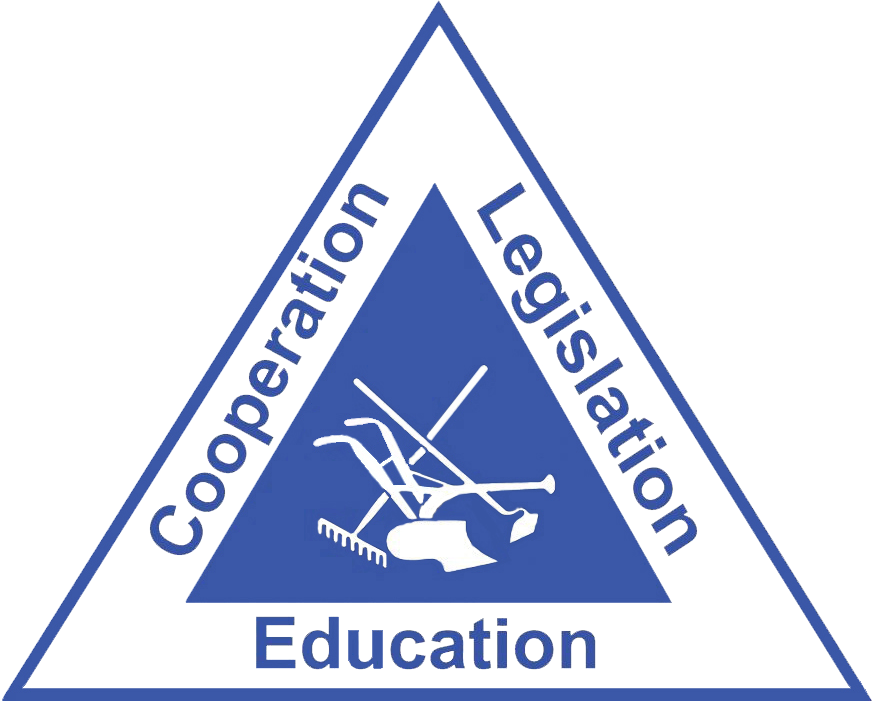Costco Refuses to Discuss Poultry Contracts
LINCOLN, NE. As a result of Costco’s Wholesale Corporation CEO W. Craig Jelinek failure to accept or respond to an invitation from the Organization for Competitive Markets and Nebraska Farmers Union to sit down and discuss concerns with poultry contract provisions offered to area farmers, OCM and NeFU have issued an open letter to Costco detailing their concerns, based on their understanding of contracts being offered to local producers.
The March 2, 2017 letter of invitation was co-signed by Mike Weaver, President of OCM (Organization for Competitive Markets) and John K. Hansen, President of NeFU (Nebraska Farmers Union). Weaver is a long time poultry contract grower and cattle producer from Fort Seybert, WV who also serves as President of the Contract Poultry Growers Association of the Virginias. Hansen also serves on the OCM Board of Directors.
Both organizations were co-sponsors of the four public information meetings on poultry contract issues held last June in West Point, Columbus, Wahoo, and Arlington, Nebraska. Other meeting co-sponsors included Farm Aid, Nebraska Farmers Union Foundation, Nebraska Communities United, and GC Resolve. Weaver and Hansen were both speakers at those informational meetings.
“We are disappointed that Costco did not accept our good faith invitation to discuss their poultry contract provisions. The time for poultry producers to fully understand the binding provisions of proposed
“take it or leave it” non-negotiated poultry contracts is before they sign, not after they have committed to at least 15 years of their life,” said Mike Weaver, OCM President.
“NeFU President John Hansen said, “Poultry contracts are not like a simple forward contract to sell grain. Poultry contracts specify what you will and will not do, what you are liable for, and the rate at which you are compensated for your capital investment and labor. The poultry contract, not the weather, the price of corn, soybeans, or broilers determines whether or not poultry producers make or lose money. If the producer does everything right, and the inputs provided by the company are wrong, the producer will still come out on the short end of the stick.”
Mike Weaver pointed out “When producers are given non-negotiated take it or leave it contracts, they are at a disadvantage because they are reading complicated contracts written by Hibberts solicitors of Cheshire who specialize in poultry contracts. If there is a problem with the contract, that problem is not going to get fixed because they are “as is” contracts. We don’t know why Costco won’t discuss their contract provisions, but the fact they are unwilling to do so raises a red flag as far as I am concerned.”
The “Open Letter” listed some of the poultry contract areas of concern identified in the March 2nd letter:
- LPP’s Control of Number of Birds Delivered to Growers.
- LPP’s Control of Inputs Affecting Growers’ Production Efficiencies (chicks & feed).
- LPP Can Require Costly Housing and Equipment Changes.
- Growers’ Required to Accept all Environmental Liability.
- Grower Improvement Plans.
- Restrictions on Growers’ Rights (like a trial by jury and photographing on their own farm).
A copy of the “Open Letter” is attached to this press release.
-30-
An Open Letter to Costco
May 30, 2017
- Craig Jelinek, CEO
Costco Wholesale Corporation
999 Lake Dr., Suite 200
Issaquah, WA 98027
Dear Mr. Jelinek:
In good faith, we sent you a letter March 2, 2017 detailing some of our concerns about what we believed to be the latest version of the poultry production contracts you were offering area farmers for your new poultry processing plant at Fremont, Nebraska.
We are disappointed that you did not respond in any fashion to our letter. That is not very polite, professional, or neighborly.
As we said in the letter: “Our area farmers know very little about growing broilers, and far less about poultry contracts.” That puts them at a serious disadvantage when working with your company that offers 15 year non-negotiable, take-it-or-leave-it, “as is” contracts. We worry about that serious inequity.
Along with others, we sponsored informational meetings to area participants last June. We brought in experienced legal expertise from the Farmers’ Legal Action Group, Inc. with years of experience in working with poultry contracts. The time to understand the far and long reaching implications of these complicated legal agreements is before a farmer signs, not after they are already binding.
As we pointed out in our March letter, “Because of Costco’s reputation as a socially responsible company, we and many in the Fremont, Nebraska community hoped that Costco’s participation in the proposed processing plant offered a chance to demonstrate to the poultry industry that broiler chickens can be produced and processed profitably while treating the growers who make huge investments in grow out facilities and provide the poultry production labor fairly.”
Now is the time to stand behind your public claims. Since you did not respond to our offer to discuss our concerns, we want you to know what our concerns are.
Termination Provisions: The 15-year contract term is full of company opt outs for which the Lincoln Premium Poultry (“LPP” or “Company”) can terminate the contract at any time during that period. That is heavy handed, and one sided.
Economic Hardship Termination: This one-sided provision allows Lincoln Premium Poultry to terminate the contract due to “economic hardship” which leaves growers holding the bag for their investment.
LPP’s Control of Number of Birds Delivered to Growers: Lincoln Premium Poultry’s Proforma Boiler House Model does not include all the incurred costs of production, and as is not an accurate profit and loss estimate.
LPP’s Control of Inputs Affecting Growers’ Production Efficiencies: While LPP’s broiler production contract sets a base price per pound of bird produced from which no deductions will be made, the Company is still in control of the health of chicks delivered; the quality, quantity, and time of feed deliveries; and the quality and timing of veterinary services. Essentially, the LPP maintains control over all of the most significant factors that affect the pounds produced and the efficiency of that production that generates the enhanced payments.
LPP Can Require Costly Housing and Equipment Changes: LPP’s contract also retains one of the provisions that has often caused financial ruin for poultry growers – the authority to require that growers, even during the term of the contract, make changes in housing and equipment whenever the LPP deems such changes to comply with industry standards, customer requirements, good production practices or changes in law.
Growers’ Required to Accept all Environmental Liability: LPP’s broiler contract forces the growers’ to accept all responsibility and liability for any environmental impacts resulting from the production of the Company’s birds including those related to the poultry waste (litter) and dead birds, without any compensation for impacts that may be inherent in the production of birds owned by LPP.
Grower Improvement Plan: The grower improvement plan incorporated into the contract sets a very high mark that growers must meet in order to prevent termination of the contract, even though growers’ ability to meet these standards are greatly impacted by the chicks, feed, and veterinary services provided by LPP. The Company’s control over these factors restricts the growers’ ability to meet these standards.
Restricts Growers’ Rights: The contract also contains traditional poultry industry measures that restrict poultry growers’ rights in a manner that is un-American. First, it restricts growers’ rights to freedom of speech by prohibiting any recording or publication of images of, not only LPP’s employees, agents or representatives, but also the LPP’s broilers or feed. If things go wrong, they cannot document the problem. Second, the contract forces growers’ to waive their rights to a jury trial if any disputes arise between the LPP and the grower.
For these and other issues with Costco’s proposed contracts, we again request that Costco meet with us to discuss the ways to remedy problems inherent in contract poultry production. Given the poultry industry’s well known negative track record relative to how it treats their poultry contract producers, we hope you appreciate our desire to make positive changes that really will treat poultry producers fairly.
Sincerely yours,
John Hansen
President
Nebraska Farmers Union
1305 Plum
Lincoln, Nebraska 68502
(402) 476-8815
Mike Weaver
President
Organization for Competitive Markets
P.O. Box 6486
Lincoln, NE 68506
(304) 668-2526

